The Employer-Sponsored Visa program in Australia allows employers to sponsor skilled foreign workers to fill specific positions within their organizations. This program is designed to address labor shortages and facilitate the recruitment of skilled workers from overseas. There are several visa subclasses within the Employer-Sponsored Visa program, each with its own set of eligibility criteria and requirements. Here are some key aspects of the program:
Common Employer-Sponsored Visa Subclasses:
Temporary Skill Shortage (TSS) Visa (Subclass 482):
- This visa allows employers to sponsor skilled foreign workers for positions on the Short-Term Skilled Occupation List (STSOL) or the Medium and Long-Term Strategic Skills List (MLTSSL).
- The TSS visa has two streams: the Short-Term stream (up to 2 years) and the Medium-Term stream (up to 4 years).
- Eligibility requirements include skills assessment, English language proficiency, and a valid job offer from an approved sponsor.

Employer Nomination Scheme (ENS) Visa
(Subclass 186):
- The ENS visa allows employers to sponsor skilled workers for permanent residency in Australia.
- There are two streams: the Temporary Residence Transition stream (for TSS visa holders with at least 3 years of work experience in Australia) and the Direct Entry stream (for skilled workers from overseas).
- Applicants must meet age, skills, and English language requirements, among others.
Regional Sponsored Migration Scheme (RSMS) Visa
(Subclass 187):
- The RSMS visa allows employers in regional areas of Australia to sponsor skilled foreign workers for permanent residency.
- This visa has three streams: the
- Temporary Residence Transition stream, the Direct Entry stream, and the Agreement stream.
- Applicants must meet various eligibility criteria, including age, skills, and English language proficiency.
Key Components of the Program:
Sponsorship:
To apply for most Employer-Sponsored Visas, you need an approved Australian employer to sponsor you. The employer must meet certain requirements and obtain approval as a sponsor from the Department of Home Affairs.
Nomination:
Employers must nominate the position they want to fill and demonstrate that it is a genuine vacancy within their organization. The nominated position must be consistent with the skilled occupation lists.
Skills Assessment:
Depending on the visa subclass and occupation, applicants may need to undergo a skills assessment by a relevant assessing authority to demonstrate that they have the necessary skills and qualifications for the nominated role.
English Language Proficiency:
Many Employer-Sponsored Visa subclasses require applicants to meet specific English language proficiency requirements. This can often be demonstrated through recognized English language tests, such as IELTS.
Labour Market Testing:
In some cases, employers may need to undertake labor market testing to demonstrate that they have tried to fill the position with an Australian worker before sponsoring a foreign worker.
Health and Character Checks:
Applicants are required to undergo health examinations and provide police clearance certificates to demonstrate their good character.
The specific requirements and processes for Employer-Sponsored Visas can be complex and vary depending on the visa subclass and individual circumstances. Employers and applicants are encouraged to consult the official Australian Department of Home Affairs website and, if necessary, seek advice from a registered migration agent to navigate the program successfully.

